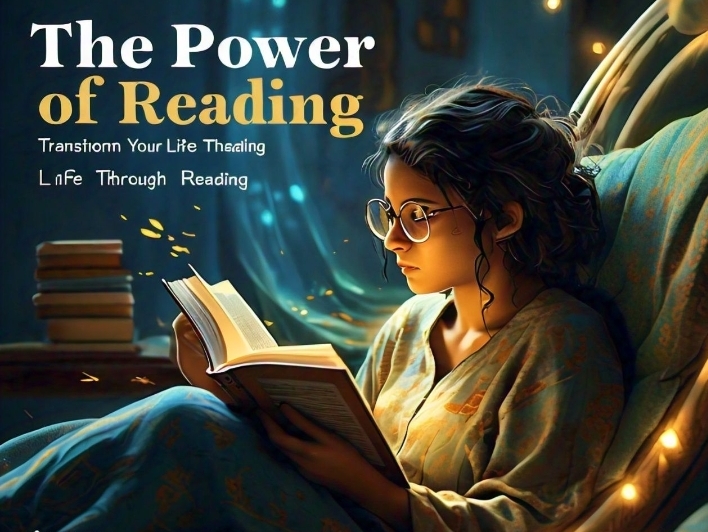The Surprising Truth About Reading Slowly: Is it Really Bad?
In today’s fast-paced world, speed is often revered as a virtue. We’re constantly encouraged to do things quickly, efficiently, and productively.
But what about reading?
Is reading slowly a bad thing? In this article, we’ll explore the surprising truth about reading slowly and why it may not be as detrimental as you think.

What exactly does slow reading mean?
Slow reading is a purposeful and mindful approach to reading that emphasizes depth over speed, comprehension over completion, and enjoyment over efficiency. It involves a willingness to slow down the reading process, savor the language, and fully engage with the material.
Slow reading is not just about reading at a slower pace but also about adopting a mindset that values thoroughness, reflection, and absorption.
The Art of Slow Reading
Slow reading is not just about speed; it’s about approach. To read slowly effectively, try setting aside dedicated time for reading, eliminating distractions, using a physical book or e-reader, taking notes and annotating, and reflecting on what you’ve read.
Real-Life Examples
Meet Sarah, a college student who struggled with reading comprehension until she discovered slow reading. “I used to rush through my assignments, but I realized I wasn’t retaining anything. Now, I take my time, and I’ve seen a huge improvement in my grades.” Silver Lining, Friends. So, before you convict yourself… Why exactly do you want to read fast?

Or consider John, a business owner who credits slow reading with improving his critical thinking skills. “I used to skim through reports and articles, but now I take the time to really read and analyze them. It’s made a huge difference in my decision-making.” Yeah, I mean you have to be careful with the figures.
The Case Against Reading Slowly
Before we dive into the benefits of reading slowly, let’s address the common criticisms. Many people view slow reading as a hindrance to productivity and a sign of poor reading skills. They argue that slow readers:
– Take too long to finish a book
– Struggle to comprehend complex texts
– Lack focus and attention
But are these assumptions based on facts or fiction? Let’s examine the evidence.
The Benefits of Reading Slowly
Research suggests that reading slowly can have numerous benefits, including:
–Improved comprehension: When you read slowly, you’re more likely to absorb and retain information.
– Enhanced critical thinking: Slow reading allows you to analyze and evaluate the material more effectively.
– Increased retention: You’re more likely to remember what you’ve read when you take your time.
– Better focus: Slow reading helps you stay engaged and avoid distractions.
So, the thing is that children are known to be very curious and fast learners. Even our teachers tell us to memorize the times table. It’s usually easy with determination, but what happens when you keep failing —-
Although, there have been several complaints by parents – “ my child reads so bad”, “ He is taking an eternity to finish a single page” , “ He is 10 years old and he can’t read fine” … A lot of vexation, but that’s not all. There is something MORE.
Report has it that parents are usually sober when they find their child not reading at pace with other kids in the neighborhood. Most of them are usually ignorant and the child becomes vulnerable.
Just Like EMILY…
Emily, a bright and ambitious student who has always struggled with reading due to dyslexia. Despite her best efforts, she finds it difficult to focus and comprehend written text. She often feels frustrated and ashamed, wondering if she’s just not smart enough. But Emily is not alone. She has dyslexia, a neurological disorder that affects language processing and reading skills, affecting millions of people worldwide.

The Challenges of Dyslexia
People with dyslexia may experience a range of challenges, including slow reading speed, difficulty with phonemic awareness, trouble with decoding and spelling, limited vocabulary, and difficulty with comprehension and retention. But dyslexia is not just about reading. It can also affect writing, speaking, and even math skills.
The Science Behind Dyslexia
Research suggests that dyslexia is related to differences in brain structure and function. People with dyslexia may have less activity in the left hemisphere of the brain, more activity in the right hemisphere, and difficulty with neural connections and communication.
But don’t worry – dyslexia is not a limitation. With the right support and accommodations, people with dyslexia can thrive and succeed.
The Benefits of Slow Reading
While dyslexia can make reading more challenging, slow reading can have numerous benefits, including improved comprehension, enhanced critical thinking, increased retention, and better focus and attention. By embracing slow reading, Emily and others with dyslexia can develop a deeper appreciation for literature, improve their language skills, and even enhance their cognitive abilities.
Conclusion
Reading slowly is not a bad thing. In fact, it can be a powerful tool for improving comprehension, critical thinking, and retention. By embracing slow reading, you can develop a deeper appreciation for literature, enhance your cognitive abilities, and even improve your overall well-being.
So, take your time, and savor the words. And remember, the next time someone accuses you of being a “slow” reader, you can proudly say, “Guilty as charged!”



